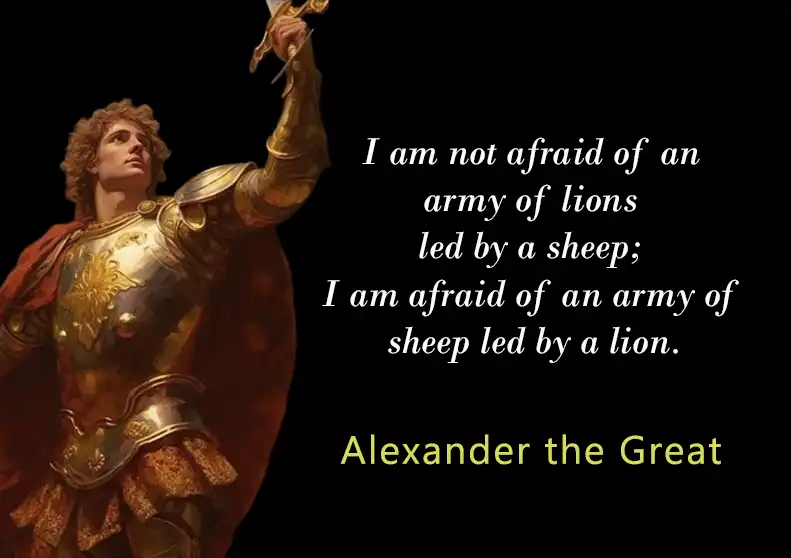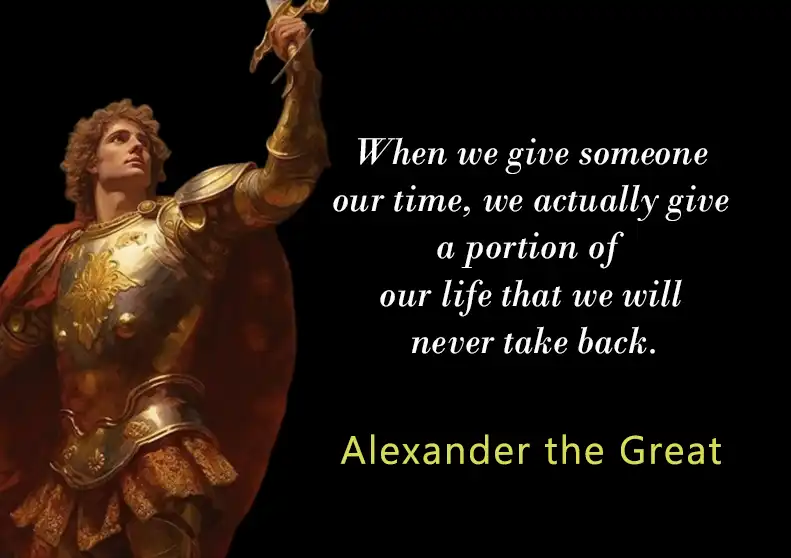Alexander the Great Quotes for Inspiration and Motivation

Alexander the Great: A Legendary Leader and Conqueror
Early Life and Succession
Alexander III of Macedon, commonly known as Alexander the Great, was born on July 20, 356 BCE, in Pella, Macedonia. He was the son of King Philip II and Queen Olympias. Alexander's father began training him in military tactics and philosophy from a young age. After Philip II's assassination in 336 BCE, Alexander succeeded him as king at just 20 years old.
Conquests and Empire Building
Alexander's ambition and military prowess led him to embark on a series of conquests that would create one of the largest empires in history. He began by conquering Persia, defeating King Darius III at the Battle of Issus in 333 BCE. He then went on to conquer Egypt, Babylon, and Persepolis, extending his empire from Greece to India.
Legacy and Impact
Alexander's legacy extends far beyond his military conquests. He spread Greek culture, language, and philosophy throughout his empire, establishing over 70 cities, including Alexandria in Egypt. He also promoted trade, commerce, and the arts, laying the foundation for the Hellenistic period.
Alexander's military tactics and strategies are still studied by military historians and strategists around the world. He was undefeated in battle and is considered one of the greatest military minds in history.
Death and Succession
Alexander died on June 10, 323 BCE, at the age of 32, possibly due to a fever or poisoning. His empire was divided among his generals, leading to a series of wars and the eventual establishment of the Hellenistic kingdoms.
Beautiful and Inspirational Quotes by Alexander the Great

I am indebted to my father for living, but to my teacher for living well.
Alexander the Great
I am not afraid of an army of lions led by a sheep; I am afraid of an army of sheep led by a lion.
Alexander the Great


A tomb now suffices him for whom the world was not enough.[Alexander's tombstone epitaph]
Alexander the Great
Conclusion
Alexander's legacy continues to inspire and fascinate people around the world. He remains one of the most famous and influential figures in history, and his impact on politics, culture, and society continues to be felt today.